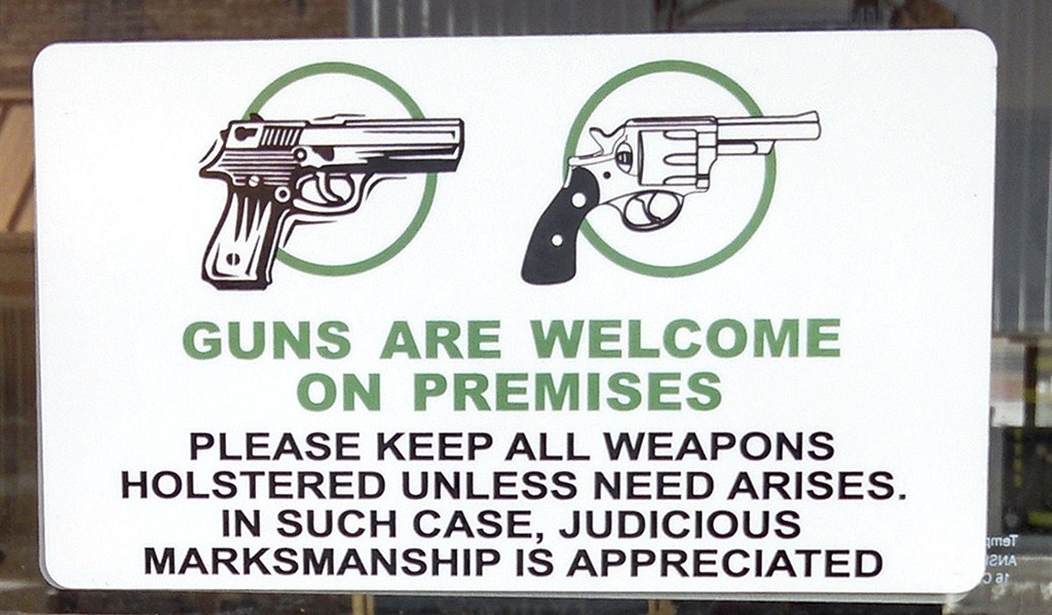Rep. Richard Hudson is sounding bullish about the prospects of a national right-to-carry reciprocity bill getting to Donald Trump this year, despite the fact that he's introduced similar bills in Congress for almost a decade.
Speaking to Fox News about the issue, the North Carolina congressman says that, unlike a sustained push for national reciprocity in 2017 that met an ignominious end in the Senate, he thinks current leadership in the upper chamber will be far more receptive and willing to help the bill reach the floor.
"We got it through the Judiciary Committee, we got it through the House," Hudson said.
"But the Senate wouldn’t move it. [Senate Majority Leader] John Thune is committed to the issue. So I think we’ll get it done this time."
However, the legislation is facing strong opposition from gun safety advocates and some state officials. Critics argue that national reciprocity would override states’ ability to set their own standards for concealed carry, effectively weakening stricter gun laws in states like New York or California.
"These lawmakers are pushing a federal mandate that would override carefully crafted gun safety laws, like New York’s, commanding states to ignore their own laws and instead allow people from across the country to carry loaded, hidden handguns in public without even so much as a permit or background check," gun safety group Everytown for Gun Safety said in a statement.
Note that for gun control activists, it's only the laws in the most restrictive states that are "carefully crafted". And while it's true that New York lawmakers did carefully craft their response to the Supreme Court's decision in Bruen (along with a helping hand from groups like Everytown, mind you), they did so with an eye towards making it as difficult as possible to exercise our Second Amendment rights. The state created a huge number of "gun-free zones" in its Concealed Carry Improvement Act, which could more accurately be labeled the Concealed Carry Infringement Act, including a "vampire rule" that prohibited lawful carry on all private property unless signage was posted to the contrary. Lawmakers didn't even let some property owners like church pastors decide for themselves whether they wanted to allow concealed carry on the premises, instead imposing a blanket prohibition on the practice in houses of worship.
The Constitutional Concealed Carry Reciprocity Act doesn't address or implicate state-specific "sensitive places", but it would still allow for true recognition of the right to carry across state lines, which, frankly, shouldn't even be an issue. No other enumerated right expires when we leave our home state, but there are a number of states like Hawaii where it's virtually impossible for a non-resident to obtain a carry permit or have their own state-issued license recognized.
Even in those anti-2A states where non-residents can theoretically obtain a permit, in practice it's so difficult that most folks won't even bother to apply. If I want to bear arms in New Jersey, for instance, I'm supposed to travel to the nearest New Jersey State Police station from my home in central Virginia to drop off my application. That would be roughly a five-hour drive for me, which is aggravating enough, and it's absolutely absurd to think that West Coast residents or even those in the heartland would carve out the time and spend the money to travel to New Jersey solely to apply for a permit to carry.
The bottom line, for me anyway, is that I can exercise every one of my constitutionally protected rights when I leave Virginia and travel to someplace like Maryland or Massachusetts except my right to keep and bear arms. Until that changes the Second Amendment is a second-class right, and if Congress can provide the fix instead of the Supreme Court, I'm more than okay with that outcome.









Join the conversation as a VIP Member